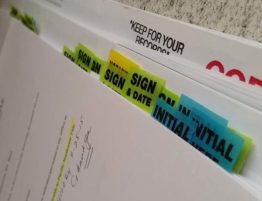
Fourth DCA Holds Plaintiff Must Possess the Original Allonge
Earlier this month in U.S. Bank N.A., etc. v. Jean Kachick, 4D16-1776, the Fourth District Court of Appeal affirmed the trial court’s final judgment in favor of the homeowner because the Plaintiff failed to file the original allonge with the trial court. Although the original note was filed, the allonge, which is an additional page affixed to a promissory note for the purpose of adding additional endorsements, was not an original but was merely a copy.
The case crystalizes the longstanding, important principle in all promissory note cases that the note holder must have the original document in their possession in order to foreclose. Due to sloppy record keeping practices banks or other creditor do not always keep track of the original loan documents that homeowners sign or allonges that are added to the note later by subsequent note holders. What has been known for a long time is that in order to file an original note count the plaintiff must be in possession of the original loan documents, and this case confirms that the original note also includes allonges that are added to the note later.

If banks are missing that piece of the puzzle, the 4DCA points out that there are remedies available, specifically the bank can file a lost note cause of action as to the allonge. This gives the homeowners additional protections in case the allonge appears at some later date and it turns out that the bank that filed suit was not actually entitle to collect on that promissory note.
Contact Our Plantation Florida Foreclosure Lawyers
Our Foreclosure Attorneys will take your case to trial to try to beat the bank. If you need help with any debt related issues, including foreclosure, credit card debt, or even if you’re contemplating bankruptcy, contact Light & Gonzalez, PLLC today to speak with a lawyer who can go over all your legal options.









